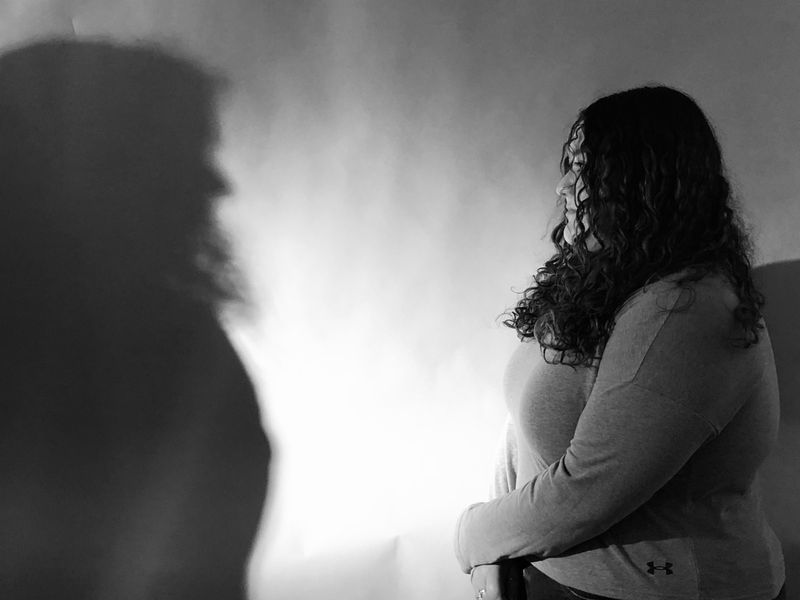We Are America
Accepting Me
By Alexia

Lowell High School, Lowell, Massachusetts
Throughout my childhood my appearance was a never ending joke. Comments were made by anyone and everyone it seemed. From my family it was anything from my curly hair or to whatever skin tone I was during that season. In the winter I was pale like the snow outside just as my great aunts and uncles who came from Azores on my Fathers side. But in the summer I was tan like warm brown sugar, the same as my cousins from El Salvador. And everyone always made a point to talk about my hair, as no one on either side had anything close to my delicate, dark, long lion’s mane that always felt bigger than me. It was hard not being able to see someone who looked like me and to only share some features.
As I got older into my teenage years, it was difficult to identify with either side of my family. When people asked the question “What are you?” I would stumble to say either side first. They would look at me weirdly as I didn't have many defining features of either side like prominent Portuguese cheekbones or large dark brown Salvadorean eyes. The comments eventually stopped as I got older people would just assume what I was without checking with me. To me this would only add to the confusion of where I belonged.
I felt I was too “white” for the hispanic kids even though I grew up listening to my family speak Spanish and music by Romeo Santos, Aventura, Prince Royce. Or I couldn't relate to the Portuguese kids as I didn't have the same interests as them -- I couldn’t name famous soccer players like Luís Figo, Rui Costa or Paulo Futre. I hadn’t seen major films like ’Ín Vanda’s Room’ or ’April Captains’ these were movies that were inspired by my culture, but I had never known about as a little kid.
In middle school I found friends that I felt comfortable around that didn't care about similarities. But it didn't stop some of the jokes that some classmates made. Kids joked that I was related to hispanic drug lords like El Chapo, Pablo Escobar, Osiel Cárdenas Guillén--people who I barely knew about until the jokes were made and who I had to look up to figure out who they were. Some jokes were related to the border between America and Mexico even though I wasn't Mexican. Even people who I considered to be my friends made jokes sometimes. I never truly found them to be funny, but it was easier to laugh with them rather than be silent.
During my transition from middle school to high school I started working at an organization called Teen Block, which helps create leadership opportunities and create a safe environment for youth in Lowell, by allowing teens to speak out about issues they are passionate about and try out new hobbies. It took me the summer I worked there to start feeling comfortable, but then, for the first time I began to open up about how I felt not being connected to my ethnicity, how my experience as a young Latina woman didn't feel valid as my peers didn't view me the same way I viewed myself. I was able to speak to other teens who felt the same way as I did. I found confidence in talking about how I never felt connected to my heritage. How I never felt truly myself. I was able to speak to adults who were open about their experience with culture. I learned that I didn't have to validate who I was to other people as long as I knew who I was. That it didn't matter what I looked like compared to my family or any stereotype, it didn't matter if I had long silky hair or an olive complexion, because I was an individual.
It took me a long time to learn to love who I was and every part of me but I am now proud to say that I am Salvadorian and Portuguese, and have the confidence to correct people when they tell me otherwise.
© Alexia. All rights reserved. If you are interested in quoting this story, contact the national team and we can put you in touch with the author’s teacher.
- Appearance
Tags: